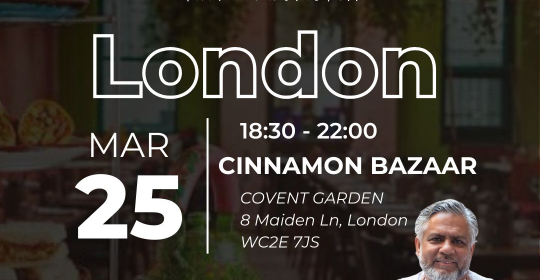Fast forward 12 months and the dual forces of the pandemic and Brexit have caused a serious recruiting issue within the Hospitality industry. The sector is reporting a substantial skills shortage that is severely impacting an industry that is emerging from one of the toughest years in recent history and threatening to hamper its recovery. How has this happened and what can recruiters do to help attract Hospitality talent to the huge number of vacancies needing to be filled?
The Guardian reported in an article in early May that pubs believe up to a quarter of those employed before the first lockdown won’t return, which is why pubs, restaurants and cafes across the UK are on an increasingly desperate hiring drive. WaveTrackR data shows that applications have dropped considerably over the past 18 months. WaveTrackR’s Recruitment Trends: Lockdown Report revealed a massive 582% fall in applications in the Catering, Hospitality sector between the first three months of 2020 and the final three months of the year. This could be partly explained by a reduction in jobs but applications fell by nearly 200% more than jobs did over the same period. more recently, WavetrackR’s April 2021 Report revealed that the sector experienced the second lowest average number of applications per job - 5 compared to the average of 12 across all industries.
The stark reality is that Hospitality is facing a perfect storm - European workers leaving the UK following Brexit, a year of lockdowns and restrictions leading many to leave the industry permanently and a renewed desire for a better work-life balance which Hospitality will struggle to offer. Prior to Brexit, over 30% of hospitality workers are believed to have have come from Europe, rising to over half in London. Now, with many of those workers either forced out due to the post-Brexit immigration points system or having left to be with family during the pandemic and decided to stay, there is a huge hole in staffing numbers. According to the Office for National Statistics, more than 50,000 migrants left the UK in the second quarter of 2020, with that number likely increasing over the rest of the year. Peter Borg-Neal, chairman of pub chain Oakman Inns, said in the Guardian article that the government will need to “rethink immigration principles” to allow the Hospitality industry to recruit more workers from outside of the UK.
What else can we do? The Springboard Initiative, supported by the Savoy Educational Trust, drinks group Diageo and independent hospitality food service provider BaxterStory, aims to support the training of up to 10,000 young workers by next summer. The hope is that, as well as training young new recruits, the initiative will attract talent from other client-facing industries with similar skillsets such as retail. However, it still won’t be enough to support an industry that usually employs 3 million workers.
One of the problems facing recruitment in the industry is a renewed desire by many - having been able to spend more time with family during lockdowns - for a better work-life balance. Hospitality is renowned for its long, anti-social hours and physically demanding work. No longer is it a badge of honour to work crazy hours and there is a far greater emphasis on mental health and quality of life. Perhaps the industry could use this as an opportunity to address pay, hours worked and general conditions. In the US, McDonalds and Chipotle Mexican Grill have already raised wages to increase their talent attraction and staff retention amidst similar recruitment problems with Hospitality.
Having experienced first-hand the way the government cracked down on hospitality venues, yo-yoing between full closure and restrictions, many that have left the industry will have been worried about the possibility of future lockdowns and therefore job stability. Those that retrained or pivoted carers when they lost their jobs might now work in an industry that offers a stable career and a better work-life balance. Uncertainty of the future is currently a huge driver away from Hospitality.
As the Hospitality industry opened to indoor diners and drinkers this month, there has been a stronger need to address the shortfall in staff numbers, leading to a range of incentives being offered to lure talent. The Sunday Times reported that staff at some big restaurant groups are being offered cash bonuses or gift vouchers for recommending friends. Kate Nicholls, chief executive of UK Hospitality, told the newspaper that they have recommended to the government a ‘coronavirus recovery visa’ for workers that don’t meet the points threshold because of lower salary and/or skills but are that are vital to the recovery of the UK’s economy.
The CEO of London Hospitality group D&D, Des Gunewardena, told Bloomberg that he believes that there will be a shift in Hospitality towards a “higher skilled, higher wage sector.” Government-backed and in-house training will be essential, pay may need to increase, and guaranteed hours be offered. An emphasis on mental health within an industry that is known for being high-pressure and high-stress will also help lure talent back to Hospitality. What is clear is that something needs to change to bridge a gap that both the pandemic and Brexit has thrown open, to encourage more workers into an industry that could help propel the economy back to health.







